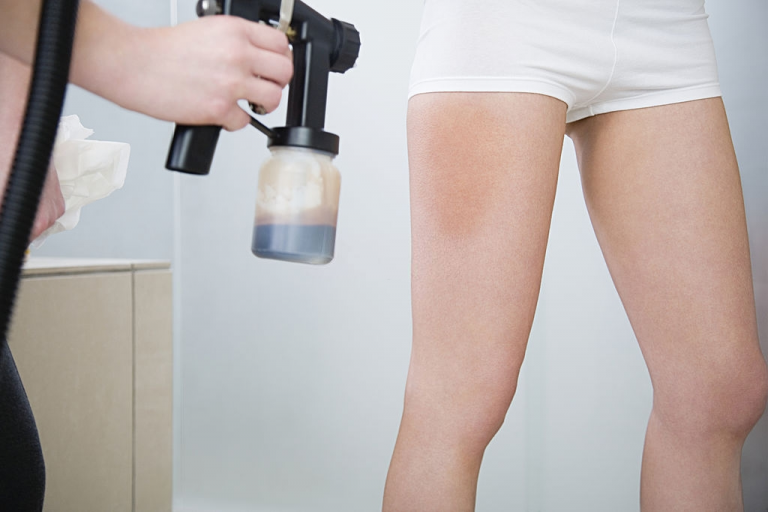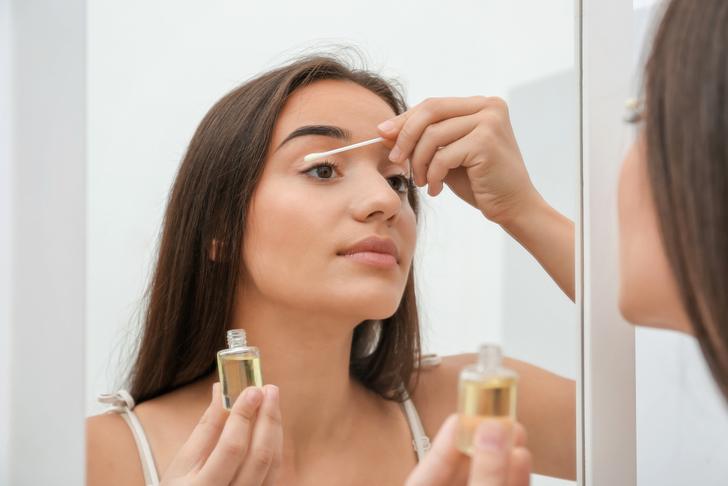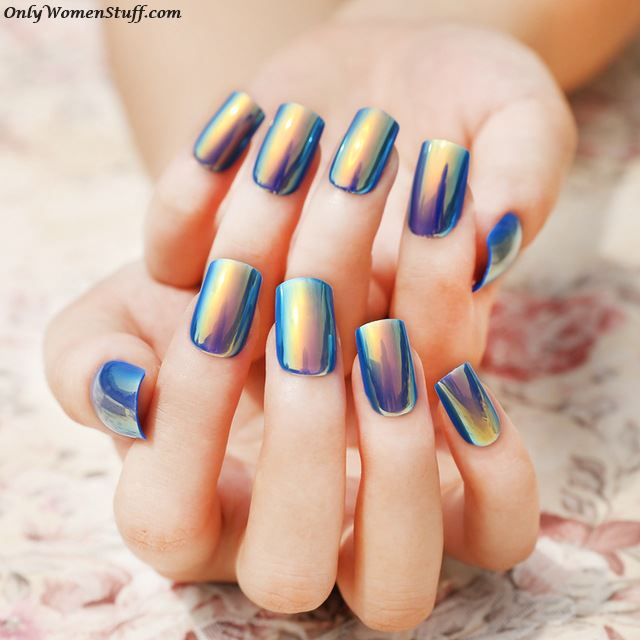How to Properly Take Care of Dry Skin
How to Properly Take Care of Dry Skin: Winter is almost here! And unfortunately so is dry skin. Apart from the harsh windy atmosphere, low levels of sebum in the skin can also cause dryness, which leads to itchiness, irritation, rashes, dullness, or roughness. To restore the glow and moisture on your face, it is important that you take a few careful steps.

Using the Right Products:
If you are struggling with dry skin, use gentle cleansers, shower gels or soaps. Do not use products that are harsh to the skin. Look for dimethicone, lanolin, ceramides, petroleum jelly and glycerine in skin products like moisturizers, cosmetics, body lotions, or facial washes. Avoid skincare products with alcohol, artificial fragrances, and dioxane.
Exfoliation:
To remove dry skin, exfoliate! You can either exfoliate using facial cloths or cleansing brushes, with alpha-hydroxy acids (AHAs) and beta-hydroxy acids (BHAs), or a natural exfoliator like this. You can use these in combination or separately.
Exfoliation is necessary to rid your skin off dead cells, dirt, and pollution, and to keep your skin fresh. By exfoliating once a week, you are doing your skin a huge favor by protecting it from infections, bacterias, dullness, and breakouts.
For dry skin especially, it is recommended that you use natural scrubs, for example, brown sugar scrubs are extremely beneficial for exfoliation and moisture. Doing some more research is important and can be worthwhile.
Cleansing:
Cleanse your face every day and night with a gentle cleanser after getting up in the morning, when coming home after a long day outside, and to remove makeup. Look for a cleanser that is suitable for dry skin; ingredients such as Polysorbate 85 or 60, Cocamidopropyl Betaine, shea or cocoa butter, paraffin, beeswax, olive, coconut, and jojoba oils are all beneficial for dry skin.
A good cleanser will effectively cleanse off dirt and buildup accumulated throughout the day, keeping your skin fresh and protecting it from acne and breakouts. It’s an important part of your hygiene and should be used as an alternative for soaps that dry the skin. Invest in a good quality skincare product. Never compromise on your skincare.
Hacks to Relieve Dry Skin:
Keep your skin moisturized with natural oils. Coconut oil is recommended by dermatologists as a miracle worker for dry skin. Avoid rubbing your skin too much, instead, gently massage with your fingers. Apply sunscreen whenever your skin is exposed to the sun; look for SPF 15 or more.
Keep yourself hydrated at all times as water keeps the skin glowing, moist, and fresh. Eat foods that are rich in Omega-3 fatty acids, like cold-water fish (salmon and halibut), walnuts, or safflower oil. Do not take long, hot showers, as excess contact of water with skin can cause natural oils in the skin to deplete.
Extreme dry skin can cause infections, as dryness allows the skin to crack which lets bacteria in. Another skin condition common with dry skin which causes redness, inflammation, and cracks is known as eczema (atopic dermatitis). It is so important to protect and treat dry skin.
To avoid such troubles or illnesses, it’s best if we take good care of ourselves and encourage others to do as well. Prevention is always better than cure and can avoid the costs and pains that could have been avoided in the first place. Routinely taking such simple steps will make sure your dry skin doesn’t cause you trouble!
Wear the Right Clothes:
Think about it – your clothes are always in contact with your skin. So it makes sense you should consider your apparel while caring for your skin. Wear cotton or other natural fibers, especially in summers. In winters, look for soft fabrics like linen, silk, or other cotton-blends. Wearing synthetic fabrics like fleece, polyester, or nylon can cause irritation to dry skin. Use soft mufflers or scarves to protect your face from itching and irritation in cold weather.
Moisturise:
A moisturizer is an essential skin care product you need if you have dry skin. It’s needed to keep your skin soft, supple, and protected from breakouts and cracks, and premature aging. In case of skin conditions such as eczema, you need a medicated moisturizer specially designed for your skin type. It’s very important to seek advice from a dermatologist.
One of the most effective moisturizers is mineral oil as it fills the cracks between your skin and seals moisture. Before purchasing a moisturizer, look for skincare ingredients such as lanolin, petroleum jelly, glycerin, shea butter, and natural oils. Avoid moisturizers with artificial or harmful ingredients like alcohol, artificial scents, salicylic acid, willow bark, witch hazel, or AHA acids.
Delve into moisturizing soaps or shower gels instead of regular soaps and steer clear of deodorants and scrub brushes. Wash your clothes as they strip away natural oils of the skin. Always apply moisturizer as soon as you wash your face, hands, or body.
Natural and Essential Oils:
Keep your skin moisturized with natural oils. Coconut oil is recommended by dermatologists as a miracle worker for dry skin and acne. Keep in mind that organic and unrefined oils are best for the skin.
Some essential oils such as tea tree, argan, and lemon have become common ingredients for skincare products, but they are to be used very carefully as they can be harsh on the skin.
Usually, it is advised that you use an essential oil by mixing a few drops of it with a carrier oil (olive, coconut, almond, etc).
For sensitive and dry combination skin, however, it’s recommended that you completely avoid using essential oils and stick only to organic oils, as essential oils can more commonly cause allergic reactions.
Sunscreen is Your Holy Grail:
Apply sunscreen whenever your skin is exposed to the sun; look for SPF 15 or more. Using a sunscreen every single day is extremely important, as it stops premature aging and the development of fine lines. It prevents skin from dirt, pollution, and harsh wind while retaining its moisture and keeping your skin’s complexion even.
Do some online research to see which sunscreens are best for dry skin. Dry skin needs to be moisturized and protected at all times, and so, sunscreens are needed while you are out on the go or in the sun.
Diet and Hygiene:
Keep yourself hydrated at all times as water keeps the skin glowing, moist and fresh. Eat foods that help relieve dry skin and are rich in Omega-3 fatty acids, like cold-water fish (salmon and halibut), walnuts, or safflower oil. Add fruits like watermelon, lemon, and citrus fruits to your diet as they all keep you glowing and hydrated and excrete toxins from your body that are responsible for breakouts.
Again, don’t take too long hot showers, as excess contact of water with skin can cause natural oils in the skin to deplete. Yes, we all need a long bubble bath to relax, but not more than once a week. You may add natural oils to your bath to nourish your skin while you enjoy some ‘me’ time in the tub.
And while traveling in an airplane, keep a moisturizer or a moisturizing facial spray with you as the air in the plane dries the skin. Keep applying moisturizer from time to time or spritz the facial spray to protect your skin from artificial air.
Quality Over Quantity:
Never ignore quality skincare products. You invariably get what you pay for. So always invest in products that are cruelty-free, organic, and do not contain harmful ingredients. There are a lot of skincare and beauty products that are sometimes too pricey. But you might want to make a smart investment as such products last longer and include packages that can serve you for a month or two.
Such products are also easy to apply and don’t really feel heavy on the skin. Your skin will be velvety soft and you will see the difference for sure. Plus, the cute packaging is always a treat!
Home Remedies for Dry Skin:
Whip up a nice homemade olive oil and sugar scrub by mixing half a cup of sugar and two tablespoons of olive oil. Gently scrub your skin, wash it off, and apply a soothing lotion to pack the moisture and glow. You can also make DIY face masks using natural ingredients; simple avocado masks work wonders for dry skin.
Applying aloe vera to dry and irritated skin is very helpful especially in winters as it alleviates redness, signs of aging, and acne breakouts. Home remedies for dry skin are necessary to avoid expensive use of beauty and skincare products.
These might seem overwhelming, but taking a few measures (not all) for your skin’s health can prove beneficial. They say beauty is skin deep. Well, that certainly highlights the importance of skin, if nothing else! So take care of your skin. Little things like choosing the right face cream or eating the right foods can make a stark difference that you can’t help but notice!
Related Other Posts:
- Top 10 Best Moisturizer for Dry Skin
- 12 Easy Tips To Prevent Dry Skin in Winter
- Anti Redness Cream Products
- Easy Ways to Remove Makeup Naturally
- Moisturizers Cream for Sensitive Skin






